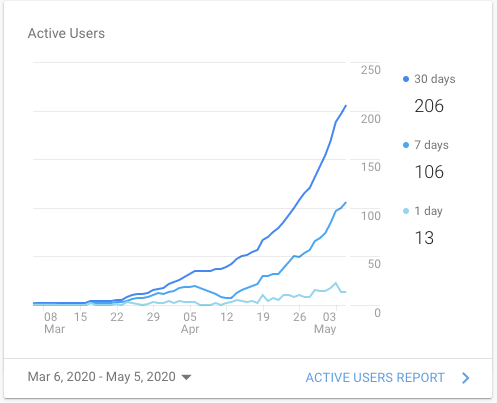If you’re reading this, chances are you’re looking to grow your legal practice. You might be venturing out with your own law firm for the first time. Or you might be a veteran lawyer who wants to take the practice you already have to a whole new level.
That could mean moving to a bigger office, adding another associate or paralegal, or branching out to new practice areas. Maybe you want to hit 7 figures in billings in 2020.
Whatever your dreams are for your law practice, you need new clients to grow. So you need to generate leads. Not just any leads but high-quality leads – people who are ready and willing to hire you.
Lead generation is a part of business development and marketing. You’ll find many lead generation options for lawyers online, including:
Earlier this month, I discussed the top 10 pay-per-lead services for lawyers at Jacob Sapochnick’s blog, The Enchanting Lawyer. Each method has its pros and cons, but the data strongly favor one strategy over the rest, both in cost-efficacy and ROI.
So what’s the best way to get more leads for lawyers in 2020?
1. SEO and Content Marketing: The Clear Winner for Lawyer Lead Generation
Yes, SEO is about the long game. But if you’re doing it right, you should start seeing results in as little as 1-3 months. While you shouldn’t expect instant gratification, you can expect exponential gains over time.

That’s because SEO – search engine optimization, or search engine marketing – builds on itself over time. Think of every optimized page on your website or blog as an online asset. The more current, relevant, and interesting content you have, the more you can:
- Target high-intent, long-tail keywords that people actually search for
- Cover multiple topics in your practice area to target specific types of clients
- Internally link between the pages on your website to raise all of their rankings
- Get external backlinks from other websites referring to your content as a resource
- Direct traffic to your website by linking to your content through social media and other channels
I like to think of building my website as building my empire, little by little. Consistency is important – but you could see a huge difference with just two blog posts per month.
Click here to read more about how hiring a legal content writer can help your law firm get more clients. Click here for answers to the most frequently asked questions about legal content and SEO.
Evergreen Online Assets Keep Working for You
That’s another thing that so many marketers (myself included) love about SEO – your assets belong to you and stick around for the long term.
Both pay-per-click advertising and pay-per-lead services stop working the moment you stop paying for them. You’re at the mercy of third parties who could easily change their rates. Facebook, for example, increases its ad cost a little bit every quarter.
Instead of paying for ads or lead generation services for a year, imagine if you had posted an informative SEO blog post every week. That’s 52 landing pages on topics directly related to your legal practice – 52 assets made to bring potential clients to you right as they’re searching for your services.
Unless you’re doing something terribly wrong, a law firm with that kind of website should dominate search results in its practice area. That could mean thousands of relevant hits from organic search results, with results that grow exponentially over time.
The best thing about good content is that you can always go back and freshen it up, too.
SEO Statistics for Lawyers
Don’t just take my word for it. Here are some fresh SEO statistics for 2020:
- 51% of all website traffic comes from organic search. Paid search results in only 10% of website traffic, while social media counts for 5%.
- In fact, business services perform the best (compared to retail, entertainment, technology, and hospitality), with 73% of all traffic coming from organic search.
- Over 40% of revenue comes from organic traffic.
- 93% of all online sessions start with a search.
- 4 out of 5 people search online to find local information – including legal services.
- 47% of people view 3-5 pieces of content from a business before reaching out.
- Businesses with active blogs get 97% more leads.
- Content marketing costs 62% less compared to other channels like paid advertising.
- Each dollar you spend on content marketing gets you 3 times as many leads compared to traditional channels.
Consider Your Ideal Client
Imagine yourself in the mind of your ideal client – someone (a layperson) who has a legal issue they might not understand. What would you do?
Like most people, you’d probably ask Google.
Imagine that a Google search points you in the direction of a local attorney’s blog that answers your exact question. You click and you’re impressed by the informative, helpful content. The article’s professional and friendly tone makes the lawyer easy to approach.
Wouldn’t you want to work with a lawyer like that?
Content works to establish trust with potential clients from the first time they hear about you. Your website is a way to introduce your law firm to your ideal audience on your own terms.
Suppose this lawyer has links to other pages on their website that cover related topics – other questions you were wondering about, legal issues you hadn’t even considered, or general advice that you appreciate. On every page, there’s a quick and easy way to contact the lawyer for a free case consultation.
All you have to do is click a phone number or open a chat window.
This is a winning SEO strategy. Keyword targeting + quality content + clear calls to action. That’s what the power of SEO can do for your law practice.
If you want to talk about your content strategy, contact me to get started today.
2. Pay-Per-Click Advertising for Lawyers
Paid online advertising is a whole other beast compared to SEO.
SEO is “inbound” marketing – you encourage traffic to come to you from the inside out, by developing content directly on your website.
PPC advertising, on the other hand, is “outside-in” marketing. You market on external websites (such as Google AdWords or Facebook ads) to get people to click on your site.
Paid advertising might appeal to you. It seems straightforward and follows marketing principles similar to traditional advertising. Online ads come with precise audience targeting and instant gratification.
Ads can also level the playing field – to an extent. If you’re a new or small firm, you can still appear next to the more established firms in your practice areas. Just keep in mind that bigger firms will probably have the resources to out-spend you in the long run.
The marketing world is evolving and the data on paid advertising isn’t great:
- Only 3.4% of searches result in someone clicking a paid ad (such as AdWords).
- 70-80% of searchers ignore paid results completely and only click organic results.
- 70% of marketers consider SEO more effective than paid advertising.
Throw enough money at something and some of it is bound to stick. And online advertising is a really easy way to throw a lot of money at something.
The question is whether you’d get better mileage out of your money elsewhere.
The Cost of PPC Campaigns for Lawyers
Some markets might be better suited to pay-per-click advertising because of lower keyword competition. But legal ads are competitive, with a price tag to match.
The most popular lawyer-related keywords are “high-intent” – if someone is searching for this phrase, they probably already intend to hire a lawyer.
Consider the difference in these keywords: “bankruptcy statistics in California” versus “how much does bankruptcy cost in California?”
The first keyword phrase sounds more like an informational query. The second sounds like someone is actually considering bankruptcy for themselves.
Advertising for high-competition keywords could cost a lot of money – upwards of $100 per click depending on the market you’re in. You would have to continue pouring in more and more money every month to get your leads. The moment you stop paying for your ads, your lead generation dries up.
SEO, on the other hand, keeps paying you back over time.
Leave Advertising to the Professionals
Online advertising is a fast way to burn through your marketing budget. If you don’t know what you’re doing, you could end up without anything to show for your investment.
Advertising combines art and science, creativity and data. Ad copy has to be relevant and has to actually get people to click. Your keyword targeting has to be on point.
If you decide to try online advertising for your law firm, make sure you hire a legal advertising expert. Trying to do it yourself involves a steep learning curve that could cost you a lot more than you save.
You Still Need a Good Website, Even With Paid Advertising
Some practice areas with more time-sensitive issues like criminal defense could have better success with PPC advertising. You could pay for prime ad coverage and direct your traffic to a dedicated landing page or even just a phone number for potential clients to call immediately.
NEVER link your ads to your website’s homepage or another content page. If you’re paying for ads, you want to optimize conversions. Always link your ads to dedicated landing pages written to convert visitors into clients. That means you’ll need someone versed in persuasive writing to write the landing page for you.
In most cases, you’re still going to need a good website with good content. Most people are going to check out your website before they contact you – even if they clicked on your ad.
- 46.1% of people decide the credibility of a company by its website.
3. Pay-Per-Lead Services for Lawyers
I went into great detail on PPL services on the Enchanting Lawyer, a legal marketing blog run by attorney and creative marketer Jacob Sapochnick.
If you’re considering a pay-per-lead service, you’ve got a lot of options. I review the top 10 and cover their pros and cons in my article. Some of the lead services are lawyer-specific and some are general.
Pay-per-lead services can help you get started or grow your practice quickly, but you need to be prepared for the work that comes with them. The quality of your leads may vary. And you should always do pay-per-lead with a long-term content strategy in place.
- Outbound leads close at only 1.7%, compared to leads from organic search which close at 14.6%.
What’s your law firm’s lead generation strategy? How has it worked for you? Have you tried any of these services? I’d love to hear about your experience. Contact me now to chat!
